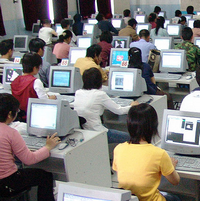This is Part I of a two-part series. Part II will appear tomorrow, and will examine the Chinese government and society's struggle to adapt to the information age.
BEIJING -- China's rise is one of the critical geopolitical variables of our time, with many in the West fearing the advent of a politically repressive, secretive new superpower. However, Chinese society is more open than is commonly believed, and in certain spheres, Chinese citizens may even enjoy greater liberty than their Western counterparts. Moving to a more realistic appreciation of the distribution of freedom and repression in contemporary China can not only improve the quality of international debates on the subject, but also moderate perceptions and elucidate the true nature of "the China threat."
Arguably, and ironically, the greatest source of freedom in China is government corruption and incompetence. The state has yet to evolve a functional apparatus for collecting even basic information about its citizens. China remains overwhelmingly a cash-based society where tax evasion is routine. The government's own population figures may be off by more than 100 million, and other basic demographic data, such as the number of internal migrants, is even less reliable. The use of closed-circuit video surveillance, although on the rise, is minimal. As such, the image of a totalitarian regime vastly overstates the government's management capabilities. On the contrary, citizens can reduce their formal, day-to-day interactions with the state to almost zero, and many of the civil rights concerns associated with data digitalization in developed societies have yet to emerge in China.

